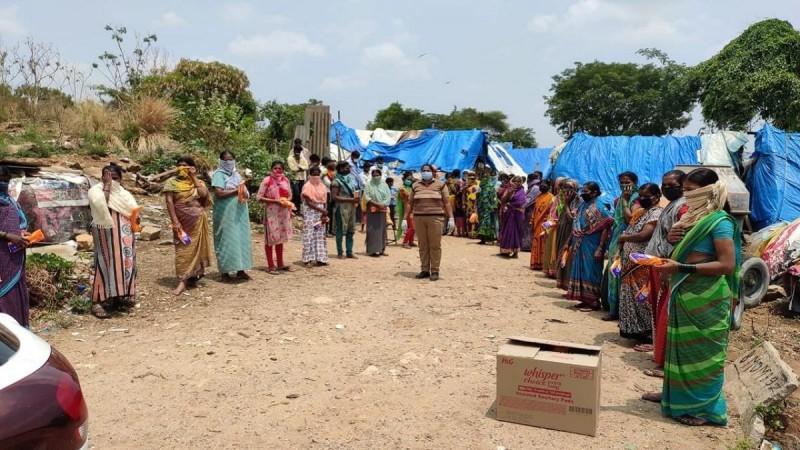In the times of lockdown where poor have no money to even arrange food, managing personal hygiene wasn't that easy for migrant women. However, considering women's menstrual health, Bengaluru police came to their rescue and distributed sanitary pads to around 30,000 migrant women across the city.

In India, periods are still considered taboo and the issue of women's personal hygiene is often brushed under the carpet. And in times like these, nobody would have cared had it not been for Rohini Katoch Sepat, deputy commissioner of police (south division) and Nisha James, deputy commissioner of police, administration to visit two migrant camps in the city.
They noticed the women at the camps didn't have sanitary pads and decided to help them. They discussed the matter with their superiors and identified approximately 29,990 women living in 657 labour camps across the city. With the help of P&G, Fresh to Home and Stonesup, more than 60,000 packs of sanitary pads were distributed among these women, covering their hygiene needs for the next two months.
With the support from Donors Bengaluru city police under the leadership of @CPBlr and with the initiative of @DCPAdmnBCP @ips_patil @IPSHemant have been able to distribute sanitary pads to women in construction labour camps. @BlrCityPolice BCP with you always pic.twitter.com/rFTs4v64MX
— Dr. Rohini Katoch Sepat. IPS (@DCPSouthBCP) April 26, 2020
Lakhs of migrant labourers rendered jobless due to lockdown
Lakhs of migrants across the country rendered jobless after the sudden announcement of a nation-wide lockdown to contain the deadly coronavirus pandemic. The lockdown left them without food, shelter and money and ban on public transport meant they could not leave for their native villages. Some took the journey on foot but died on the way. Many stayed in migrants camps set up by the government. While they were being provided with food, no one thought about the needs of women in these camps until visited by DCPs Sepat and James.
"Migrant women were forced to use cloth due to lack of sanitary pads. With no place to even bathe, it's a huge problem for most women here. To wash the cloth during abrupt rains was also an issue. As soon as the labourers see a Hoysala vehicle approaching, they would line up for groceries. One of those times, we asked only women to gather. We held a class for them on how to dispose the pads in paper and put them all in a bag for the BBMP to collect," sub-inspector Rohini T, who was part of the sanitation drive, was quoted as saying by the TOI.

















